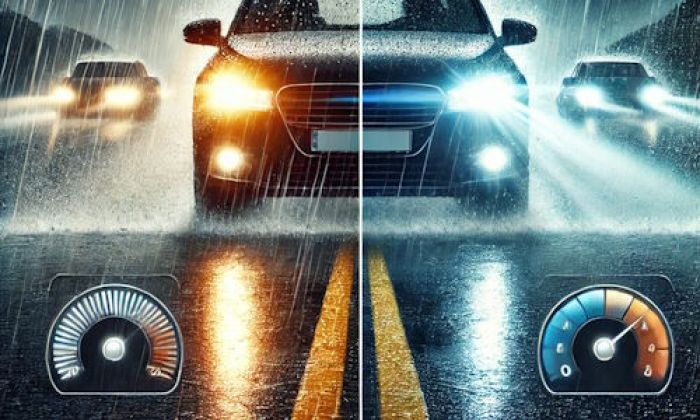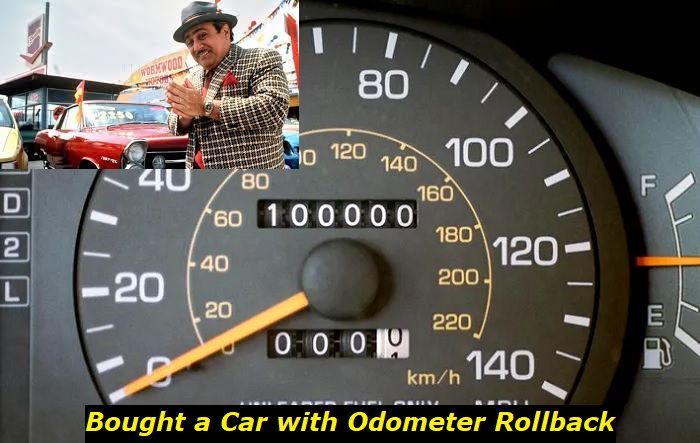Nissan is one of the biggest car manufacturers in the world. Now, in alliance with Renault and other prominent brands, the company has made it to the top sales in the world and keeps holding on to the leadership.
Nissan engines have never been considered the most reliable engines in the world. They are efficient, technological, and good to own in terms of cost of repair and maintenance. But they lose in terms of durability and reliability to other car manufacturers like Toyota or GM.
.jpg)
Still, there are dozens of legendary Nissan engines that deserve your attention. In this article, I will list all Nissan engines that I've reviewed in this blog. There will be a short description and also the link to the full article so that you can learn more about each engine.
Nissan 2.5L PR25DD engine
The PR25DD engine has been here since 2018 and has been installed in the Altima and Rogue (X-Trail) as well as in the Mitsubishi Outlander. This is the 2.5L engine with pretty simple technologies behind it.
The engine is naturally aspirated, there is no turbocharger in it. The camshafts are powered by the chain, both camshafts have phasers. The engine is extremely smooth thanks to modern technologies used to balance all the processes inside.
Interestingly, there are no hydraulic lifters, so you will have to pay for valve adjustment from time to time. Also, the engine is pretty economical as for the non-turbo 2.5L powerplant and offers a great overall driving experience.
Key features and my opinion:
- Production years:2018-2024
- Average lifespan of PR25DD:190,000-220,000 miles
- Fuel supply type:direct injection
- Power range:184-188 hp
- Fuel efficiency:good
- Engine block material:aluminum
- Engine reliability score:medium
- The most common problems:start-stop glitching, carbon buildup on intake valves, EGR valve contamination, no hydraulic lifters.
Nissan 1.5L KR15DDT engine
The 3-cylinder 1.5L engine is a technological miracle. This engine is built by cutting off one cylinder from the KR20 engine used in the Infiniti QX50. The engine has one serious improvement: the variable compression system.
Also, this is a very efficient engine belonging to the VC-Turbo family. It has a turbocharger, phasers on both camshafts, its cams are driven by the chain. The displacement may be slightly changed with the help of the variable compression system.
The engine is smooth even though it has 3 cylinders. It can produce up to 204 horsepower which is cool for such a displacement. For now, only the new Rogue (X-Trail) uses this powerplant.
Key features and my opinion:
- Production years:2020-2024
- Average lifespan of KR15DDT:160,000-180,000 miles
- Fuel supply type:direct injection
- Power range:158-204 hp
- Fuel efficiency:good
- Engine block material:aluminum
- Engine reliability score:medium
- The most common problems:start-stop glitching, carbon buildup on intake valves, no hydraulic lifters, complicated variable compression system.
Nissan 3.5L V6 VQ35DE engine
The 3.5L VQ35DE is the legendary Nissan engine that powered a lot of different models including almost all popular Nissan cars, some Infiniti models, and also Renault and Samsung cars.
It's still made and used in some modern vehicles, so we can claim this is one of the record-holders in terms of its life on production lines.
The engine is reliable and relatively simple in its technologies. It's the V6 powerplant offering great power and torque. It has a technological CVTCS phaser system, the cams are driven by the chain. The engine doesn't have hydraulic lifters, so valve adjustment will sometimes be needed.
In terms of fuel efficiency, this is not the perfect engine but given it's an old V6 with simple technologies, the fuel economy is acceptable.
Key features and my opinion:
- Production years:2000-2024
- Average lifespan of VQ35DE:240,000-270,000 miles
- Fuel supply type:port injection
- Power range:215-395 hp
- Fuel efficiency:average
- Engine block material:aluminum
- Engine reliability score:high
- The most common problems:carbon buildup on intake valves, oil consumption, bad oil leaks, 5th and 6th cylinders overheating, no lifters.
Nissan 1.6L HR16DE engine
This is a pretty old and simple engine with basically nothing technological in it. While this may make it a little less fuel efficient or not as powerful as you may want, such conditions turn it into a very durable and reliable machine.
This is the 1.6L non-turbocharged 4-cylinder engine with cast-iron sleeves in the aluminum cylinder block. Cams are driven by the chain, the intake cam has the phaser on it to adjust valve timing. There are no hydraulic lifters in this engine, so you will need to pay for valve adjustment.
The engine has been used in dozens of Nissan cars all over the world. Interestingly, it had almost no modifications. Just some emission features were tuned up over the years. I can't say it's a very economical engine but it won't disappoint you with the durability.
Key features and my opinion:
- Production years:2005-now
- Average lifespan of HR16DE:190,000-220,000 miles
- Fuel supply type:port injection
- Power range:105-120 hp
- Fuel efficiency:good
- Engine block material:aluminum
- Engine reliability score:high
- The most common problems:bad oil consumption, stretching timing chain, weak phaser, no lifters.
Nissan 2.5L QR25DE engine
This is a very popular engine in a lot of markets. It's the 2.5L non-turbo 4-cylinder engine from the QR family. It has been used in a lot of Nissan models and also in Renault and Suzuki cars. The engine is simple yet pretty efficient.
It's not powerful at all but the good torque helps the engine offer you great acceleration from low RPM. Fuel efficiency is more or less good, better than in many similar engines. The engine has balance shafts but doesn't have hydraulic lifters. It has phasers on the intake camshaft.
The cams are driven by the chain. The modern generation of the QR25DE engine also got additional phasers for the exhaust cam.
The powerplant is really good in terms of durability and overall reliability. It just requires proper maintenance to last more than average.
Key features and my opinion:
- Production years:2000-now
- Average lifespan of QR25DE:190,000-220,000 miles
- Fuel supply type:port injection
- Power range:150-185 hp
- Fuel efficiency:average
- Engine block material:aluminum
- Engine reliability score:medium
- The most common problems:bad oil consumption, cylinder walls warping, timing chain stretching, engine head gasket failing, lots of minor problems.
Nissan 2.0L MR20DE engine
The 2-liter MR20DE is one of the legendary engines made by Nissan. It was used in various popular models including Sentra, Teana, and Qashqai (but not limited to those ones).
The engine is pretty simple and it offers nothing super technological. Aluminum block with iron sleeves, chain-driven cams, phaser on the intake camshaft, and absence of hydraulic lifters are its features to consider.
The engine is not very efficient in terms of fuel consumption. The addition of an electronically controlled injection system allowed the manufacturer to fit it into the needed features for emission control. But still, the machine is pretty old-fashioned and the company stopped using it in new vehicles in 2020.
Key features and my opinion:
- Production years:2005-2020
- Average lifespan of MR20DE:220,000-250,000 miles
- Fuel supply type:port injection
- Power range:133-147 hp
- Fuel efficiency:average
- Engine block material:aluminum
- Engine reliability score:medium
- The most common problems:bad oil consumption, weak timing chain and phaser, bad and failing sensors, very soft engine head metal.
Nissan 2.0L MR20DD engine
The MR20DD 2-liter engine was mainly used in Europe but eventually, it appeared under the hood of the Sentra in the US. The engine is much more modern than the previously reviewed MR20DE.
This powerplant has more or less the same construction but it has phasers on both camshafts, its chain is a little more reliable. There is a complicated EGR system that requires attention at high mileage. Also, there are no lifters, so the valves will have to be adjusted manually.
As with all MR-family engines, the head is pretty soft here and requires professional labor even when spark plugs are replaced. Otherwise, the soft aluminum may crack or the thread may be damaged leading to expensive and serious problems.
Unfortunately, the addition of different modern technologies made this engine way less durable than the previous generation.
Key features and my opinion:
- Production years:2010-now
- Average lifespan of MR20DD:130,000-160,000 miles
- Fuel supply type:direct injection
- Power range:140-150 hp
- Fuel efficiency:good
- Engine block material:aluminum
- Engine reliability score:low
- The most common problems:soft engine head metal, carbon buildup on intake valves, timing chain stretching, throttle contamination, oil consumption.
Nissan 1.3L DIG-T (HR13DDT) engine
This engine is made in England and is mainly used in European Nissan vehicles. Also, it's used in Renault cars as the 1.3 TCe engine and in Mercedes vehicles as the M282 unit.
This is the 1.3-liter turbocharged 4-cylinder engine with great power and overall good feedback from owners. This is a small engine but it offers good reliability and is enough to power such vehicles as the X-Trail or Qashqai.
The Garrett turbocharger creates magic. Also, both cams have phasers, the camshafts are driven by the chain. There are hydraulic lifters, so no need to adjust the valves. The technologies are pretty simple but they are still good and efficient.
The main advantage of this engine is the perfect gas mileage that could compete with some full-hybrid models.
Key features and my opinion:
- Production years:2017-now
- Average lifespan of HR13DDT:120,000-150,000 miles
- Fuel supply type:direct injection
- Power range:140-160 hp
- Fuel efficiency:excellent
- Engine block material:aluminum
- Engine reliability score:medium
- The most common problems:carbon buildup on intake valves, glitchy start-stop, timing chain stretching, unreliable turbocharger pipes.
About the authors
The CarAraC research team is composed of seasoned auto mechanics and automotive industry professionals, including individuals with advanced degrees and certifications in their field. Our team members boast prestigious credentials, reflecting their extensive knowledge and skills. These qualifications include: IMI: Institute of the Motor Industry, ASE-Certified Master Automobile Technicians; Coventry University, Graduate of MA in Automotive Journalism; Politecnico di Torino, Italy, MS Automotive Engineering; Ss. Cyril and Methodius University in Skopje, Mechanical University in Skopje; TOC Automotive College; DHA Suffa University, Department of Mechanical Engineering






Add comment